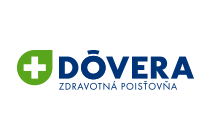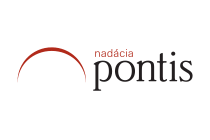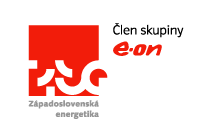INEKO Supporters
Dátum: 10.04.2013
Asociácia strojárskeho a elektrotechnického priemyslu
 COOP Jednota Slovensko,
COOP Jednota Slovensko,
spotrebné družstvoDÔVERA zdravotná
poisťovňa, a.s.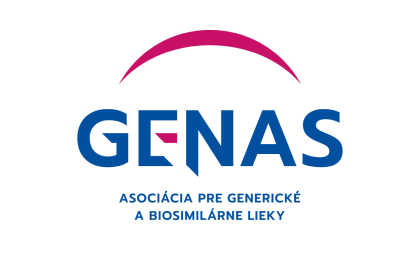 GENAS Asociácia pre generické a biosimilárne lieky
GENAS Asociácia pre generické a biosimilárne liekyIT Asociácia Slovenska
 Msquare s.r.o.
Msquare s.r.o. Posam, spol. s r.o.
Posam, spol. s r.o.Republiková únia
zamestnávateľov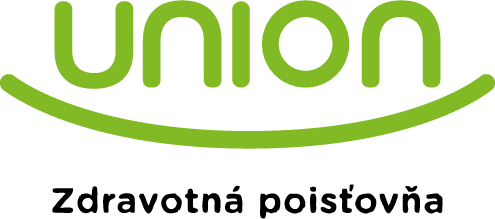 Union zdravotná poisťovňa
Union zdravotná poisťovňa
Peter Goliaš - Director of INEKO
Dátum: 21.11.2012
Peter Golias is Director at the Bratislava based think-tank INEKO – Institute for economic and social reforms. His responsibilities include management of the organization as well as monitoring and analyzing structural reforms mainly in health care, education, labor market and public finance.
Peter Goliaš (1977) is Director at the think-tank INEKO (Institute for economic and social reforms), a non-governmental nonprofit organisation based in Slovakia. He has 13 years of experience in the field of socio-economic research and advocacy. The areas of his professional interest include public finance, pensions, health care, education and labour markets. Since 2002, Peter coordinated several INEKO projects aimed at monitoring and analyzing structural social and economic reform process in Slovakia. As a Consultant for the Slovak Ministry of Labour he participated in the project “Social Benefits Reform Administration”; title of consulting services: “Pension Reform Design – Supervision and Regulatory”. He worked also as a Consultant to the Slovak Ministers of Education and Finance. He published and co-authored numerous studies and articles on the topics above. Among them, he is Co-author of the “Annual National Reports 2010, 2011, 2012 and 2013: Pensions, Health Care and Long-term care, Slovakia” written for the European Commission and of the “Transition Costs of Reformed Pension Systems, 2008“ – publication supported by the European Community Programme for Employment and Social Solidarity. He is co-author of internet portals measuring/ranking financial health of Slovak municipalities (http://www.obce.ineko.sk/), measuring/ranking results of Slovak primary and secondary schools (http://skoly.ineko.sk/), and measuring/ranking quality and efficiency of Slovak hospitals (http://nemocnice.ineko.sk/). He is proficient in English, German (partially) and Czech.
Contact information
Dátum: 25.10.2005
INEKO
Bajkalská 25
827 18 Bratislava 212
Slovak Republic
Tel.: +421 944 360 390
Contact e-mail: ineko[at]ineko.sk
Staff:
How to support us
Dátum: 25.10.2005
WHY TO SUPPORT US?
HOW TO SUPPORT US
- If you want to support us, you may click on the following button (PayPal):
- Support can be also based on a regular legal contract. For details, please contact Peter Goliaš.
THERE ARE TWO MAIN WAYS TO SUPPORT INEKO
1. The institutional support serves to provide stable environment for the management of our projects. It is spent on funding basic infrastructure of our Institute, which is necessary for sustaining and developing our activities. INEKO is able to offer the following services for a given institutional support:
- EUR 3,000 per year – INEKO partner title, name and logo on INEKO website
- EUR 10,000 per year – INEKO main partner title, name and logo on INEKO website, publications and seminars
- EUR 20,000 per year – INEKO general partner title, name and logo on INEKO website, publications, seminars and press reports, annual presentations about the Slovak economy by INEKO experts (e.g. for the employees or commercial partners)
- Higher amount – individual conditions based on mutual agreement
2. The activity funding concerns the support of specific INEKO projects, or particular outputs within projects such as seminars or publications.
INEKO Partners
Dátum: 25.10.2005
Favourite reading
Dátum: 13.10.2005
We look forward to your suggestions
Current
- Collins, J. (2001):
Good to Great,
HarperCollins, New York - Friedman, B. (2005):
Moral Consequences of Economic Growth,
Alfred A. Knopf, New York - Friedman, T.L. (2005):
The World is Flat,
Farrar, Straus and Giroux - Giddens, A. (2000):
The Third Way and its Critics,
Polity Press, Cambridge, UK - Harford, T. (2005):
Undercover Economist,
Oxford University Press - Landes, D. (1998):
Welth and Poverty of Nations,
W. W. Norton & Company New York, London - Levitt, S.D., Dubner, S.J. (2005):
Freakonomics,
William Morrow, New York - Lewis, W.W. (2004):
The Power of Productivity,
Chicago University Press - North, D.C. (2005):
Understanding the Process of Economic Change,
Princeton University Press
Key Works
- Arrow, K. (1974):
The Limits of Organization,
Norton and Company, New York, London. - Bach, R. (1970):
Jonathan Livingston Seagull.
Avon Books, New York - Baumol, W. (2002):
The Free-Market Innovation Machine, Analysing the Growth Miracle of Capitalism,
Princeton University Press - Berle, A., Jr., and Means, G. (1932):
The Modern Corporation and Private Property
Commerce Clearing House, Chicago. - Coase, R.: (1937):
The Nature of the Firm
Economica 4. - Coleman, J.S. (1990)
The Foundation of Social Theory
Harvard University Press - Diamond, J. (2000):
Osudy lidských společností, střelné zbraně, choroboplodné zárodky a ocel v historii
Columbus, spol. s r. o. Praha,z anglického originálu: Guns, Germs, and Steel/The Fates of Human Societies,
W.W. Norton & Company, New York, London, 1997. - Drucker, P. (2001):
The Next Society
The Economist November 3, 361, No 8246, The Economist Newspaper Limited. - Fromm, E. (1970):
Sny a mýty,
Obzor, Bratislava,
z anglického originálu "The Forgotten Language"
Holt, Rinehart and Winston, New York, 1965. - Fukuyama, F. (1995):
Trust: The Social Virtues and the Creation of Prosperity,
Hamilton, Hamish, London. - Fukuyama, F. (1999):
The Great Disruption,
Touchstone, New York. - Galor, O. and Moav, O. (2001):
Natural Selection and the Origin of Economic Growth,
CEPR, London. - Hayek, F. (1975):
Rules and Orders,
University of Chicago Press, Chicago, USA. - Hesse, H. (2001):
Siddhartha,
Petrus - Inglehart R. (1999):
Postomdernization Brings Declining Respect for Authority but Rising Support for Democracy, v "World Values Survey",
www.isr.umich.edu - Kafka, F. (2004):
Proces,
Vydavatelstvo Európa - Krivý, V. (2001):
Náboženské prejavy v 90. rokoch,
v Gyárfášová, O. Krívý, V., Velšic, M. et al.:Krajina v pohybe, Správa o politických názoroch a hodnotách ľudí na Slovensku,
Inštitút pre verejné otázky, IVO, Bratislava. - Lipták, Ľ. (2002):
Zbrojárska urbanizácia,
v OS, Fórum občianskej spoločnosti, str. 3-10, Kalligram, spol. s r. o. Bratislava - North, D.C., (1990):
Institutions, Institutional Change and Performance,
Cambridge University Press. - North, D.C. (1992):
Transaction Costs, Institutions, And Economic Performance,
International Center for Economic Growth, San Francisco. - Olson, M. (1998):
The Logic of Collective Action, Public Goods and the Theory of Groups,
Harvard University Press, Cambridge, Massachusetts. - Porter, E. (1990):
The Competitive Advantage of Nations,
New York: The Free Press, London: Macmillan Press. - Putnam, R. (1993):
Making Democracy Work,
Princeton University Press, New Jersey. - Rajan, G., R., Zingales, L. (2000):
The Governance of the New Enterprise, v Corporate Governance, Theoretical & Empirical Perspectives.
Editor Xavier Vives, Camridge University Press, USA. - Toffler, A. (1980):
The Third Wave,
New York, Bantam. - Williamson, O., E. and Masten, S., E. (1999):
The Economics of Transaction Costs,
Edward Elgar Publishing, Ltd., UK. - Wright, R. (2000):
Nonzero: the logic of human destiny,
Vintage Books, New York
INEKO Sponsors
Dátum: 01.09.2005
We would like to give a big thanks to all our donors and sponsors for their support provided and to all contacted institutions for their time and energy spent on judging our grant proposals.
 Open Society Institute
Open Society Institute Nadácia Orange
Nadácia Orange Konrad-Adenauer-Stiftung
Konrad-Adenauer-Stiftung Nadácia ESET
Nadácia ESET Union Poisťovňa
Union Poisťovňa US Embassy, a.s.
US Embassy, a.s. Soitron
Soitron Posam, spol. s r.o.
Posam, spol. s r.o.
Eugen Jurzyca: INEKO director
Dátum: 01.01.2000

Eugen Jurzyca was born in Bratislava, Slovakia in 1958. He works for the Institute for Economic and Social Reforms (INEKO), he serves as a Member of Advisory Committee to the Minister of Finance, Member of the Council of the Open Society Fund in Bratislava. He worked for the Center for Economic Development, Antimonopoly Office of the Slovak Republic, he served as a Member of the Bank Council of the National Bank of Slovakia (from December 1, 2000 to December 2001), Member of the Alliance for Transparency and against Corruption, consultant to OECD and the World Bank. Mr. Jurzyca graduated from the Economics University in Bratislava, he was trained in economics at Georgetown University, Washington, D.C. (1993), and marketing at Open University Bratislava (1991-1992).
About us
Dátum: 01.01.2000
INEKO Institute is a non-governmental non-profit organization established in support of economic and social reforms which aim to remove barriers to the long-term positive development of the Slovak economy and society.
Mission
The Institute’s mission is to support a rational and efficient economic and social reform process in the Slovak Republic (SR), through research, information development and dissemination, advice to senior government, political and self-governing officials, and promotion of the public discourse. It also focuses on those areas of social policy on the regional as well as the European level critical to the economic transformation of the SR. It draws on the best experience available from other transition countries and members of the European Union (EU) and the OECD.
Wide-reaching changes brought about by industrial revolution, democratization, globalization and informatization have hit our region in the last few decades. Our society is unable to cope in this world with the rules and values valid for thousands of years any more – yet it should not ignore them either. For instance, there was no need to take care of the elderly through the first or second pillars of the pension system a thousand years ago. The seniors’ relatives provided the care reliably instead. No doubt that the relatives’ role is important today as well, yet it needs to be combined with the new schemes that would take in account changing conditions such as rising migration, and that would be able to take a good care of an increasing number of people who are not tied to small communities anymore. Hence the main mission of INEKO: to search for an optimal speed and scale of an “upgrade” of society’s operating system, its ethics code.
Here are the activities we carry out and the principles that we rely on in supporting our mission: (illustrated with the help of Vladimir Rencin’s cartoons, and by using photos we took ourselves):
- We are looking for an optimal way and degree of providing intergenerational solidarity in the era of globalization, that is in times of growing human mobility leading to changing relationships among people
- We consider the pessimistic thinking of a sizable part of the population as one of the deformations in the decision-making process, which is thus built on erroneous information
- We are trying to make sure that public funds are spent effectively and at the same time in line with taxpayers’ preferences
- We are looking for the degree of solidarity and the manner of its provision so that the society could both benefit from the globalization and stay cohesive the at the same time.
- We focus on systemic reforms. These are the reforms that help society run well even in cases when led by less than ideal politicians.
- We are looking for an optimal degree and manner of disseminating information about economic and social reforms to public. We are convinced that the key changes to social rules need to be communicated to the public carefully. Still, we admit that in some situations providing information may be harmful
- We believe that for social rules to be useful, they not only have to be logically correct, but also clear and comprehensible.
- We try to fight misleading information in the economy.
- We understand how little popular and trustworthy economists are in public eyes.. Hence we try to adjust our appearance in public accordingly
Also, let us offer you a few quotations that influenced our thinking about the world:
It is not the strongest of the species that survives, nor the most intelligent that survives. It is the one that is the most adaptable to change.
Charles Darwin
Economics is the art of making the most of life.
G.B.Shaw
The first lesson of economics is scarcity: There is never enough of anything to satisfy all those who want it. The first lesson of politics is to disregard the first lesson of economics.
Thomas Sowell
Progress is precisely that which the rules and regulations did not foresee.
Ludwig von Mises
One of the soundest rules to remember when making forecasts in the field of economics is that whatever is to happen is happening already.
Sylvia Porter
The system of private property is the most important guaranty of freedom, not only for those who own property, but scarcely less for those who do not.
Fredrich August von Hayek
Blessed are the young, for they shall inherit the national debt.
Herbert Clark Hoover
Everyone wants to live at the expense of the state. They forget that the state wants to live at the expense of everyone.
Frederic Bastiat





